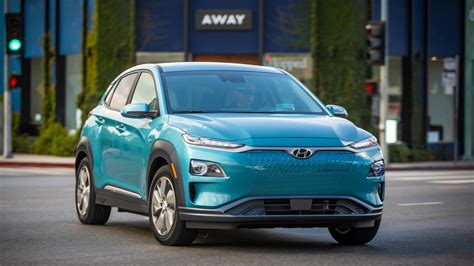The Volkswagen Atlas is a large SUV that is known for its robust capabilities and comfortable interior. It’s also highly fuel-efficient, making it an attractive option for those who want to save money at the pump.
The 2021 Volkswagen Atlas offers drivers a choice between two engines, a turbocharged 2.0-liter four-cylinder and a 3.6-liter V6. With either engine, the Atlas has EPA-estimated fuel economy ratings of 21 mpg in the city and 25 mpg on the highway. The FWD model has slightly better mileage ratings of 22 mpg city and 26 mpg highway.
The 2021 Volkswagen Atlas also has an optional all-wheel drive system that has a slightly lower fuel economy rating. With the AWD system, the Atlas earns 20 mpg in the city and 24 mpg on the highway.
The Volkswagen Atlas also comes with a variety of features that can help improve fuel economy. Standard features include an automatic stop-start system, which shuts off the engine when the vehicle is stopped and restarts it when the driver takes their foot off the brake. The Atlas also has an Active Cylinder Management system, which automatically deactivates two cylinders when full power isn’t needed.
In addition, the Atlas’ engine can run on E85 fuel, which has an octane rating of 85 and is usually blended with gasoline. Using E85 can help improve fuel economy by up to 15%, according to Volkswagen.
The Volkswagen Atlas is an ideal choice for those looking for a large, fuel-efficient SUV. With its two engine options and fuel-saving features, the Atlas can help you save money at the pump while providing plenty of space and comfort for your family.
Getting The Most Out Of The VW Atlas – How To Improve Gas Mileage
Volkswagen Atlas offers a great combination of power, efficiency, and style. With its 3.6L V6 engine, it delivers an impressive 276 horsepower and 266 lb-ft of torque. But with that power comes the need to monitor fuel efficiency. So, if you’re looking to improve your VW Atlas gas mileage, here are some tips to help you do just that.
One of the easiest and most effective ways to get the most out of the VW Atlas is to monitor your speed. The EPA estimates that driving at higher speeds can reduce your gas mileage by up to 33%. So, keeping your speed at or under the speed limit can make a big difference in your fuel economy.
Another way to improve your VW Atlas gas mileage is to check your tire pressure. According to the EPA, underinflated tires can reduce fuel economy by up to 3%. So, it’s important to check your tires monthly and make sure they are properly inflated.
Finally, getting your VW Atlas serviced regularly is also a great way to improve gas mileage. A well-maintained vehicle can improve fuel economy by up to 4%. So, make sure to take your vehicle in for regular maintenance and have it serviced in accordance with the manufacturer’s recommendations.
The Volkswagen Atlas comes with a variety of features designed to help you get the most out of your vehicle. It has a 3.6L V6 engine, delivering 276 horsepower and 266 lb-ft of torque, as well as a suite of active safety and driver assistance features, such as adaptive cruise control, lane keeping assist, and automatic emergency braking.
The VW Atlas has a starting MSRP of $31,545 for the S trim and can range up to $48,780 for the SEL Premium trim.
The Volkswagen Atlas is a great vehicle that offers a lot of power and style. But like any vehicle, it needs to be properly maintained and driven in order to get the most out of it. By monitoring your speed, checking your tire pressure, and servicing your vehicle regularly, you can help improve the gas mileage of your VW Atlas and get the most out of it.
What MPG Does A VW Atlas Get In City And Highway Driving?
If you’re looking to buy a VW Atlas, you’re probably wondering about its fuel economy. Let’s take a look at what MPG the VW Atlas typically gets when driving in city and highway conditions.
The VW Atlas is available with two powertrain configurations. The standard engine is a 235-horsepower turbocharged four-cylinder. This engine gets an EPA-estimated 21 mpg in the city and 24 mpg on the highway. If you opt for the available 276-horsepower V6 engine, you can expect slightly lower fuel economy numbers, as it is rated for 19 mpg in the city and 24 mpg on the highway.
The VW Atlas also has an available all-wheel-drive system. However, opting for this system does not affect the fuel economy much. The all-wheel-drive version of the standard four-cylinder engine is rated for 21 mpg in the city and 24 mpg on the highway, while the V6-equipped AWD model gets 18 mpg in the city and 24 mpg on the highway.
The VW Atlas has a few features that help maximize its fuel economy. This includes an available active cylinder management system. This system shuts off two cylinders when cruising, allowing the engine to operate more efficiently. The VW Atlas also has an active aerodynamics system that helps reduce drag.
Overall, the VW Atlas is an efficient SUV that should be able to meet the needs of most drivers. It offers strong fuel economy numbers no matter which engine you choose, and its advanced features help maximize its efficiency.
VW Atlas Fuel Economy:
| Engine | City MPG | Highway MPG |
|---|---|---|
| Turbocharged four-cylinder | 21 mpg | 24 mpg |
| V6 | 19 mpg | 24 mpg |
| Turbocharged four-cylinder with all-wheel drive | 21 mpg | 24 mpg |
| V6 with all-wheel drive | 18 mpg | 24 mpg |
The gas mileage on a VW Atlas depends on the powertrain, but can range from 20 to 25 MPG in the city and 24 to 30 MPG on the highway.
The VW Atlas has competitive gas mileage compared to other vehicles in its class.
No, a VW Atlas will generally maintain the same gas mileage over the course of its lifetime.
The most fuel efficient trim of the VW Atlas is the S trim with a 2.0L engine and front-wheel drive.
Using premium gas in a VW Atlas will not have an effect on its gas mileage.
Yes, the Volkswagen Atlas comes with an Eco Mode which can help improve fuel efficiency.
Yes, the VW Atlas has features such as a start/stop system and active grille shutters that can help improve gas mileage.
No, the gas mileage of the VW Atlas will not improve when using a trailer.
Yes, the gas mileage of the VW Atlas may deteriorate in colder climates due to the increased viscosity of the engine oil.
No, the gas mileage of the VW Atlas should remain consistent over time.






